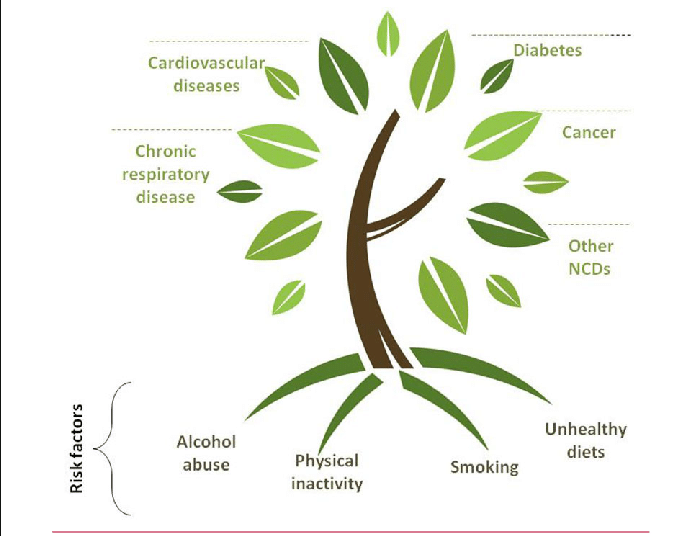Understanding Behavioral risk factors play a crucial role in determining an individual’s overall health and well-being. These factors encompass a range of lifestyle choices and habits that can either contribute to or mitigate the risk of various health issues. In this blog, we will delve into the significance of behavioral risk factors and how they can influence one’s health.

Unhealthy Diet
A major behavioral risk factor that significantly impacts health is an unhealthy diet. Consuming excessive amounts of processed foods, high in sugars, saturated fats, and salt, can contribute to conditions such as obesity, heart disease, and diabetes. A balanced diet, rich in fruits, vegetables, and whole grains, is essential for maintaining optimal health.
Physical Inactivity
Leading a sedentary lifestyle is another behavioral risk factor associated with numerous health problems. Lack of physical activity can contribute to weight gain, muscle atrophy, and cardiovascular issues. Regular exercise not only helps in maintaining a healthy weight but also improves overall cardiovascular health and mental well-being.
Tobacco Use

One of the most well-known and preventable behavioral risk factors is tobacco use. Smoking and the use of other tobacco products are directly linked to a myriad of health issues, including lung cancer, heart disease, and respiratory problems. Quitting tobacco is a vital step in reducing these risks and improving long-term health outcomes.
Also Read Swami Vivekananda’s Daily Routine
Excessive Alcohol Consumption
While moderate alcohol consumption may have some health benefits, excessive drinking poses significant risks. It can lead to liver disease, cardiovascular problems, and mental health issues. Understanding and practicing moderation when it comes to alcohol is crucial for minimizing these risks.
Stress Management

Chronic stress can negatively impact both physical and mental health. Poor stress management is a behavioral risk factor that contributes to conditions such as hypertension, weakened immune function, and mental health disorders. Adopting stress-reducing techniques, such as mindfulness and relaxation exercises, is essential for overall well-being.
Risky Sexual Behavior
Engaging in risky sexual behavior, such as unprotected sex or having multiple sexual partners, can increase the likelihood of contracting sexually transmitted infections (STIs) and unintended pregnancies. Practicing safe sex and being informed about sexual health are key components of mitigating these risks.U

derstanding Behavioral Risk Factors
Sleep Patterns
Inadequate sleep or irregular sleep patterns can have profound effects on health. Poor sleep is associated with an increased risk of obesity, diabetes, cardiovascular disease, and impaired cognitive function. Establishing a consistent sleep routine and prioritizing sufficient sleep is crucial for maintaining optimal health.
Conclusion
Understanding behavioral risk factors are essential steps towards achieving and maintaining good health. Adopting healthier lifestyle choices, such as maintaining a balanced diet, engaging in regular physical activity, and managing stress effectively, can significantly reduce the risk of various health issues. It’s important for individuals to be proactive in making positive behavioral changes and seek support when needed. By prioritizing preventive measures and fostering healthy habits, we can collectively work towards a population that is not only aware of behavioral risk factors but actively strives to mitigate them for a healthier future.
